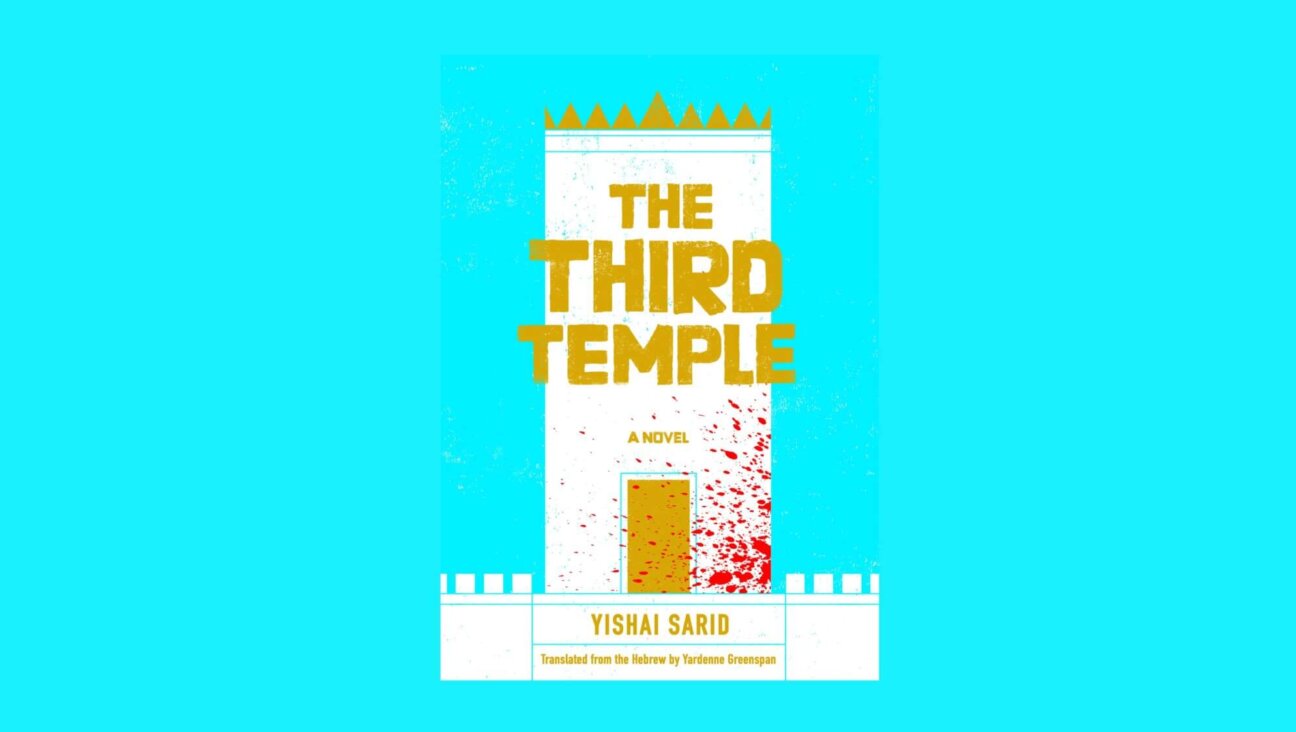How Some Jews Live

Earlier this week, Ilie Ruby wrote about the idea of bashert. Her blog posts are featured on The Arty Semite courtesy of the Jewish Book Council and My Jewish Learning’s Author Blog Series. For more information on the series, please visit:

I always begin like this, with Irv, my grandfather, and then I describe him, “An angel on Earth, never another like him.” I repeat this as I have been told, though he died long before I was born. I used to think about his life as a tree with roots reaching far into the future and encircling the past. Irv is my namesake, a hard act to follow. I can still hear my grandmother telling me at night, “May you live as he did and be just as blessed. May you see those who are unseen, and hear those who don’t speak.”
What she meant, I learned later, were the stories of my grandfather, and more, of the people he knew. I’m told that when my relatives sat shiva for Irv, who died suddenly at 46, leaving a young wife and two daughters who would mourn him forever, strangers came from near and far to share untold memories of him — the gifts he bestowed, the countless lives he saved, the support he’d offered through money, counsel, friendship, always without judgment and without any fanfare. He was not rich, but comfortable. As a child, I thought him a saint, before his frailty and humanness appeared to me. Still, there was a divinity about his connectedness — to the wanderers and those who found themselves caught in moments of fracture. Today, I think about how difficult this must have been for him to embrace it all, given his own complicated and pressured life.
Because of his capacity, I think about the expansiveness of Judaism, about hands that pray over candles in the most traditional and unconventional of places. Blessings fill a home as prayers are sung, wherever that home may be, however it is made, regardless of its trappings or its architecture or its abundance or its lack. Whether those who pray are down on their luck, or up on it, whether they are the bestowers or receivers of gifts.
When visiting book groups, I am often asked about this unconventional Jewish family in my newest novel, a single mother and her two daughters who are homeless in Southern California, who find solace in the reflection of the female face of God, the Shekhina — perhaps an uncommon path. They wander through the desert, their enchanted landscape rife with Jewish ritual and magical realism. When I began the story, I wanted to know these wanderers, these complex and compelling souls I imagined my grandfather would have embraced. As I wrote I thought about the confluence of tradition and spirituality, of the way ancestry is passed down through both stories and inherited memory, of lives pieced together like a quilt, with colors of raw survival and mistakes and compassion and personal mythology. I wanted to write a book about a Jewish family navigating life on the fringes of contemporary society. Mostly I wanted to write about people stepping out from behind their circumstances and claiming their voices.
Perhaps Irv was the man he was because of of our Hungarian-Russian ancestry, comprised of many wanderers. There are familiar stories of pogroms. Of the Holocaust where countless relatives were lost. Of immigration. Of homelessness and of splendor. My own journey took me from Boston to Jerusalem, through the Mea Shearim, and into the lives of the kibbutzim. Climbing mountains near the Dead Sea and plunging hands into the mud below, clearing vines in a vineyard at dawn as if trying to unmask a collective Jewish unconscious are experiences I will treasure. I think about those who wander mostly inside their hearts and minds, too, about the warmth of my brilliant and curious grandmother’s kitchen, about her insights, and how her Yiddish still resonates within me like music. I think often about lively discussions where elbows bear down on worn tablecloths, where explorers and healers and naysayers and matriarchs refine and redefine how Jewish people live. Today, as I raise my own family I find solace in a prayer group of expansive thinkers. I think about the divinity that ignites in the space of creating, when a sense of rightness directs conversation, when moral compasses find their true North in integrity and forgiveness. My grandfather lived the way Jewish people live, and so did all the wanderers he knew. This knowledge, his legacy, is why I begin with him.
Visit Ilie’s official website here.
The Jewish Book Council is a not-for-profit organization devoted to the reading, writing and publishing of Jewish literature. For more Jewish literary blog posts, reviews of Jewish books and book club resources, and to learn about awards and conferences, please visit www.jewishbookcouncil.org.
MyJewishLearning.com is the leading transdenominational website of Jewish information and education. Visit My Jewish Learning for thousands of articles on Judaism, Jewish holidays, Jewish history and more.
A message from our Publisher & CEO Rachel Fishman Feddersen

I hope you appreciated this article. Before you go, I’d like to ask you to please support the Forward’s award-winning, nonprofit journalism during this critical time.
We’ve set a goal to raise $325,000 by December 31. That’s an ambitious goal, but one that will give us the resources we need to invest in the high quality news, opinion, analysis and cultural coverage that isn’t available anywhere else.
If you feel inspired to make an impact, now is the time to give something back. Join us as a member at your most generous level.
— Rachel Fishman Feddersen, Publisher and CEO























